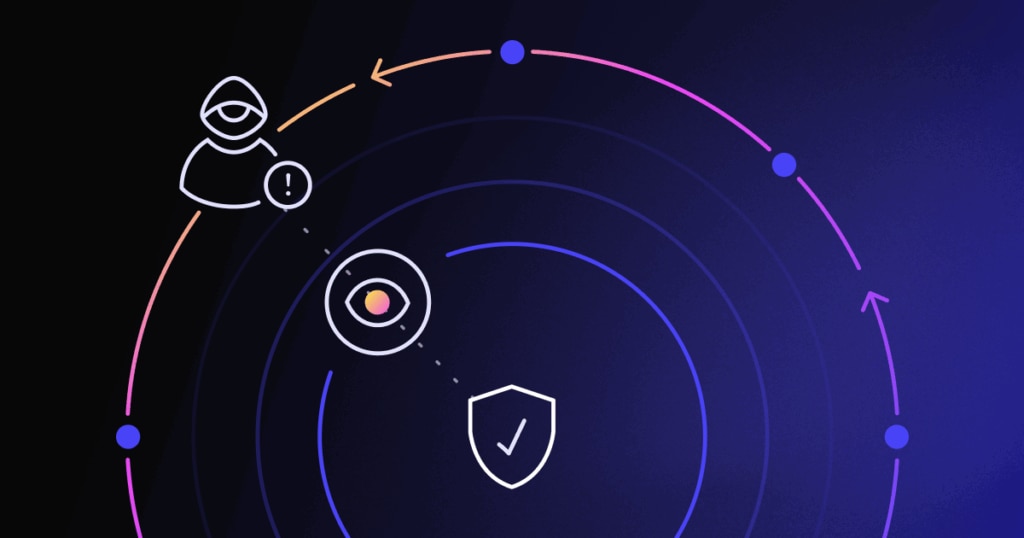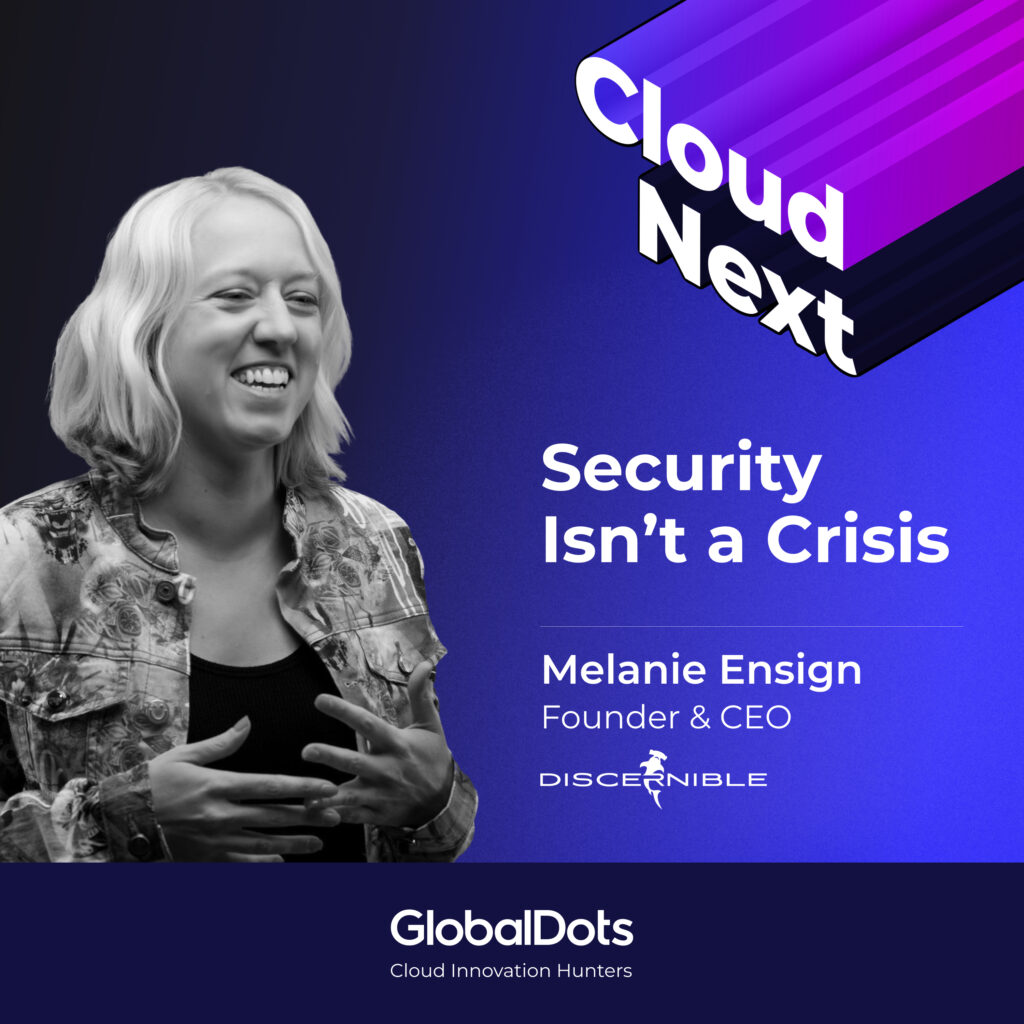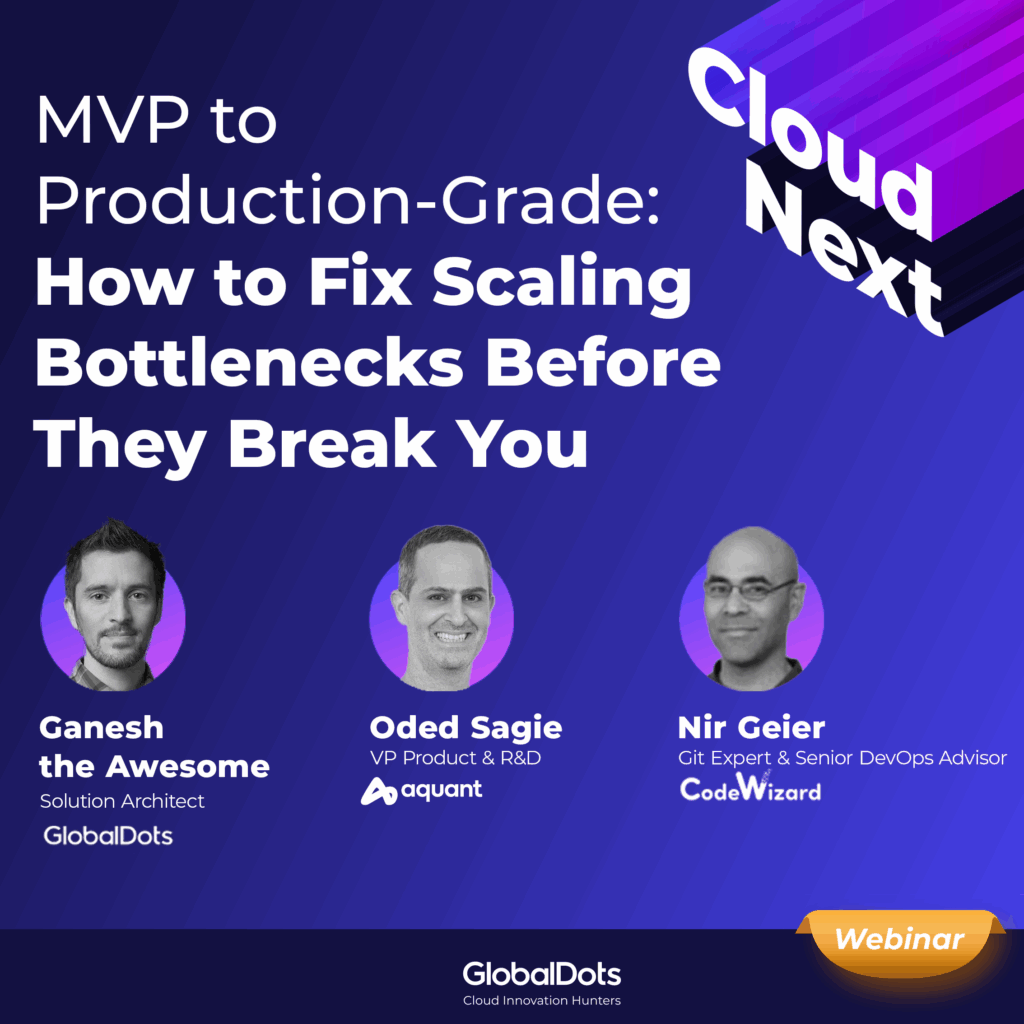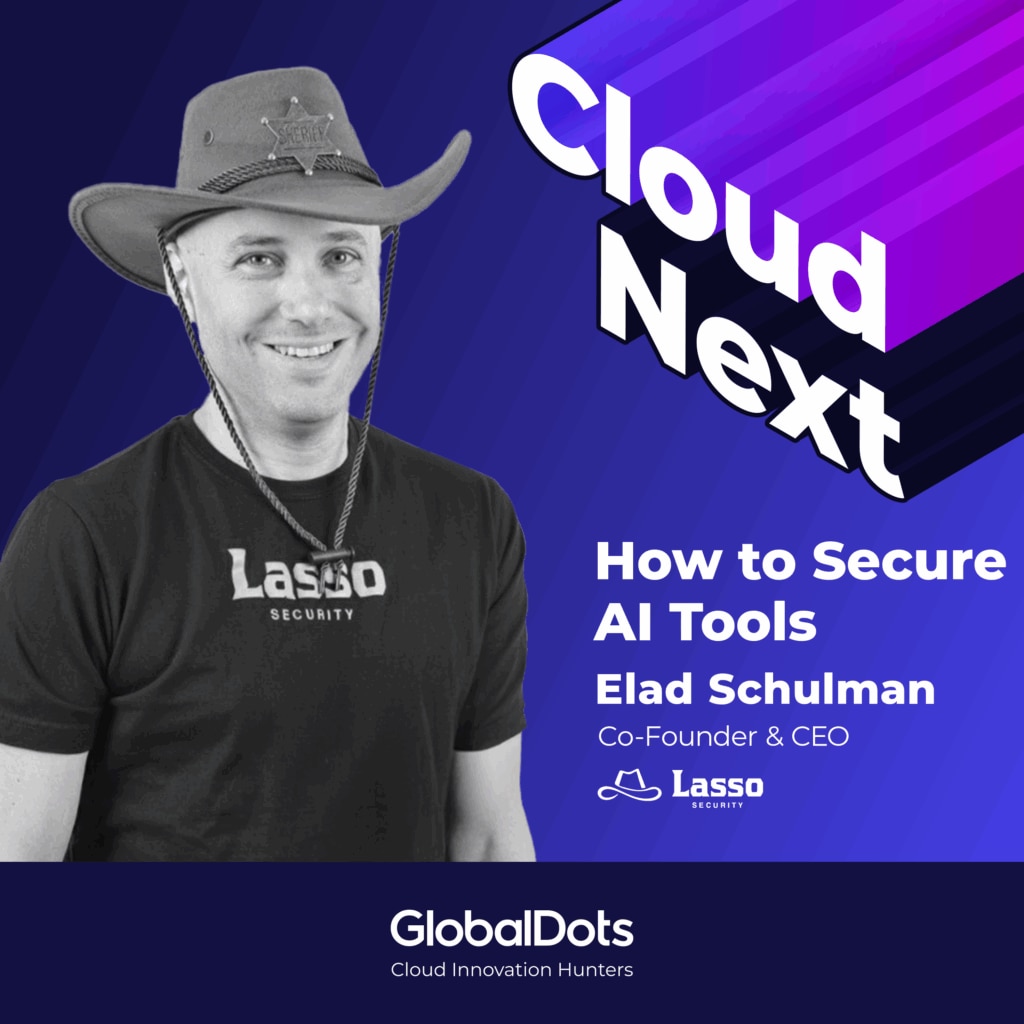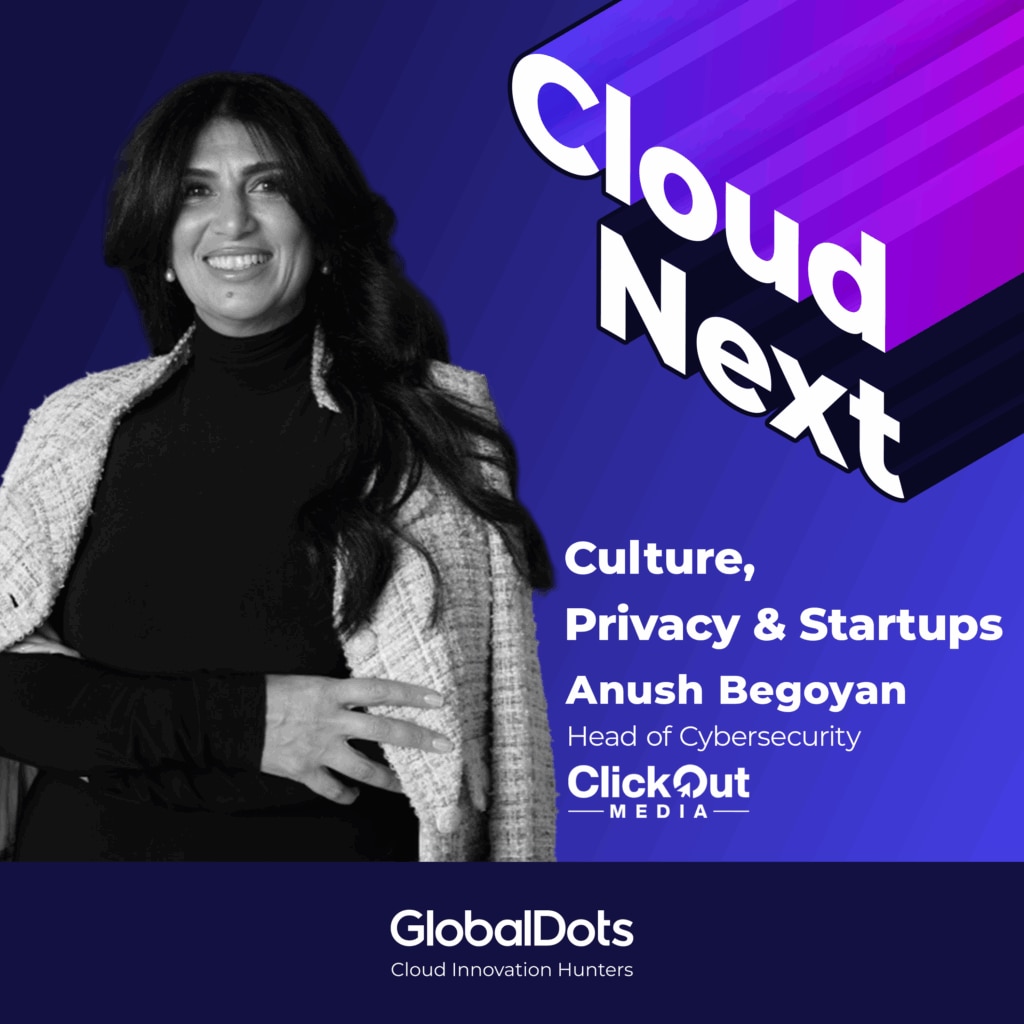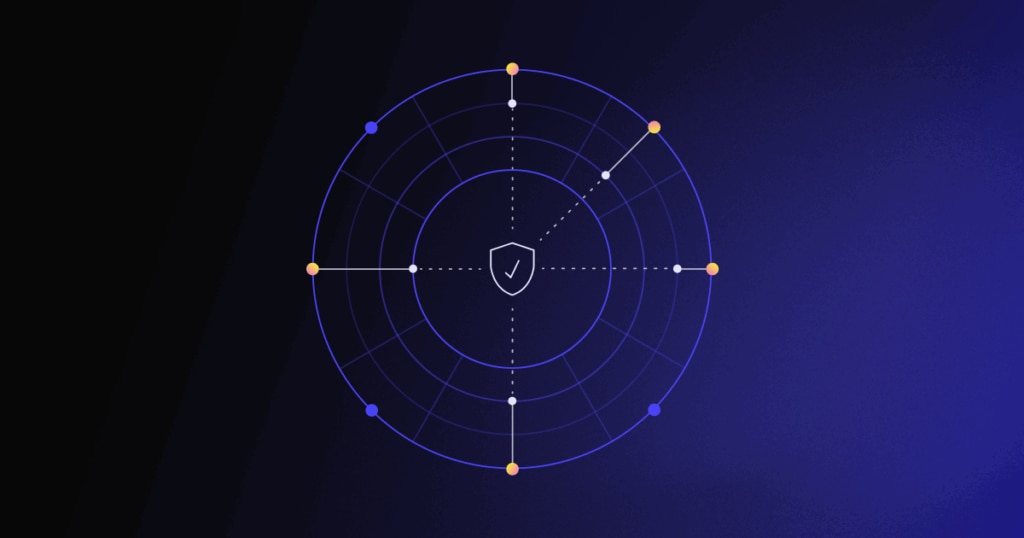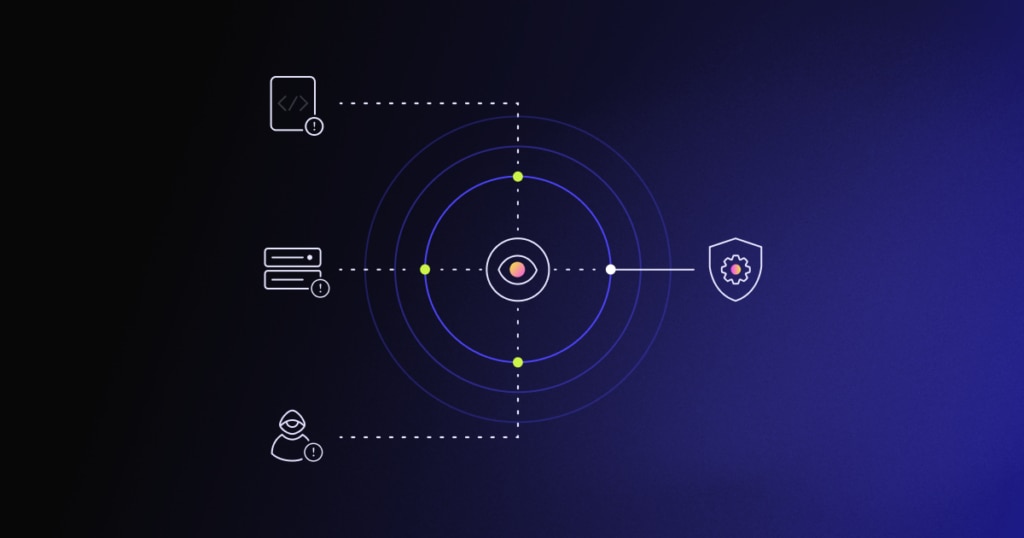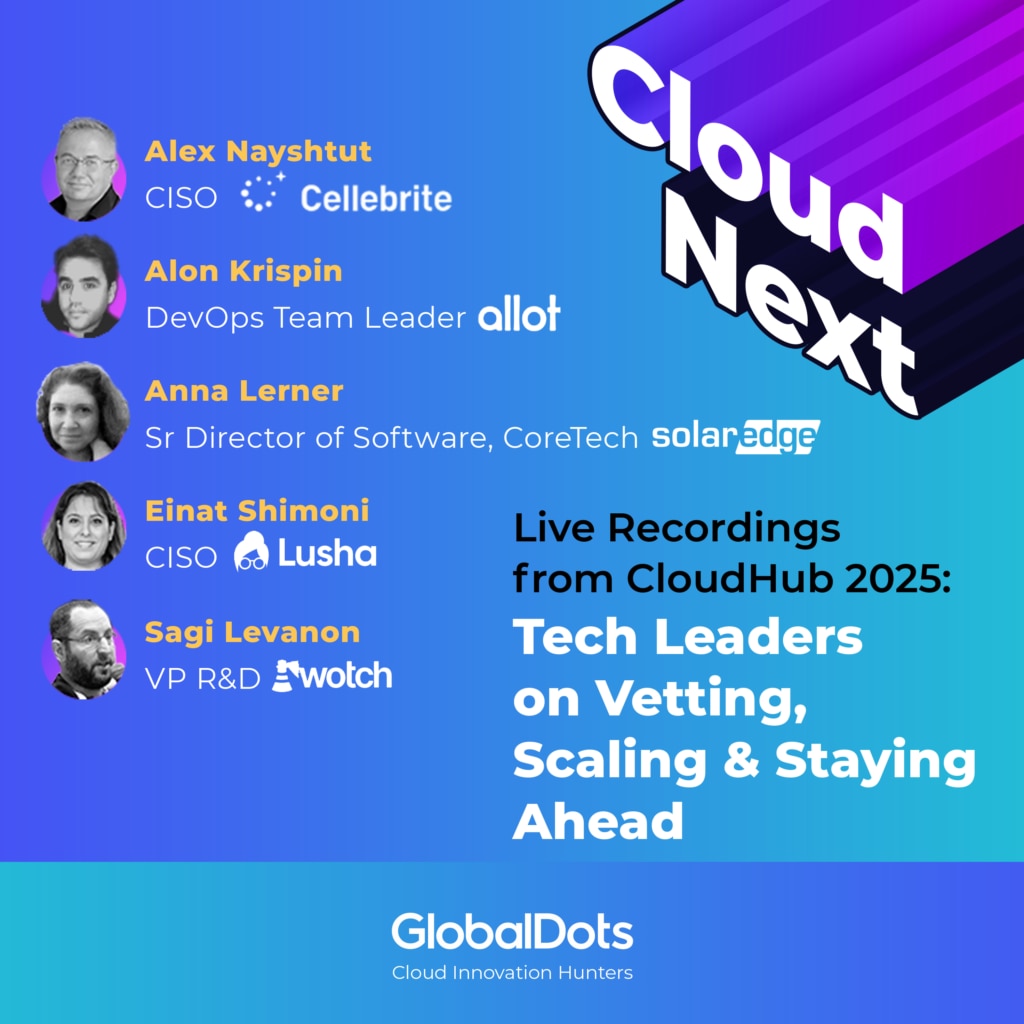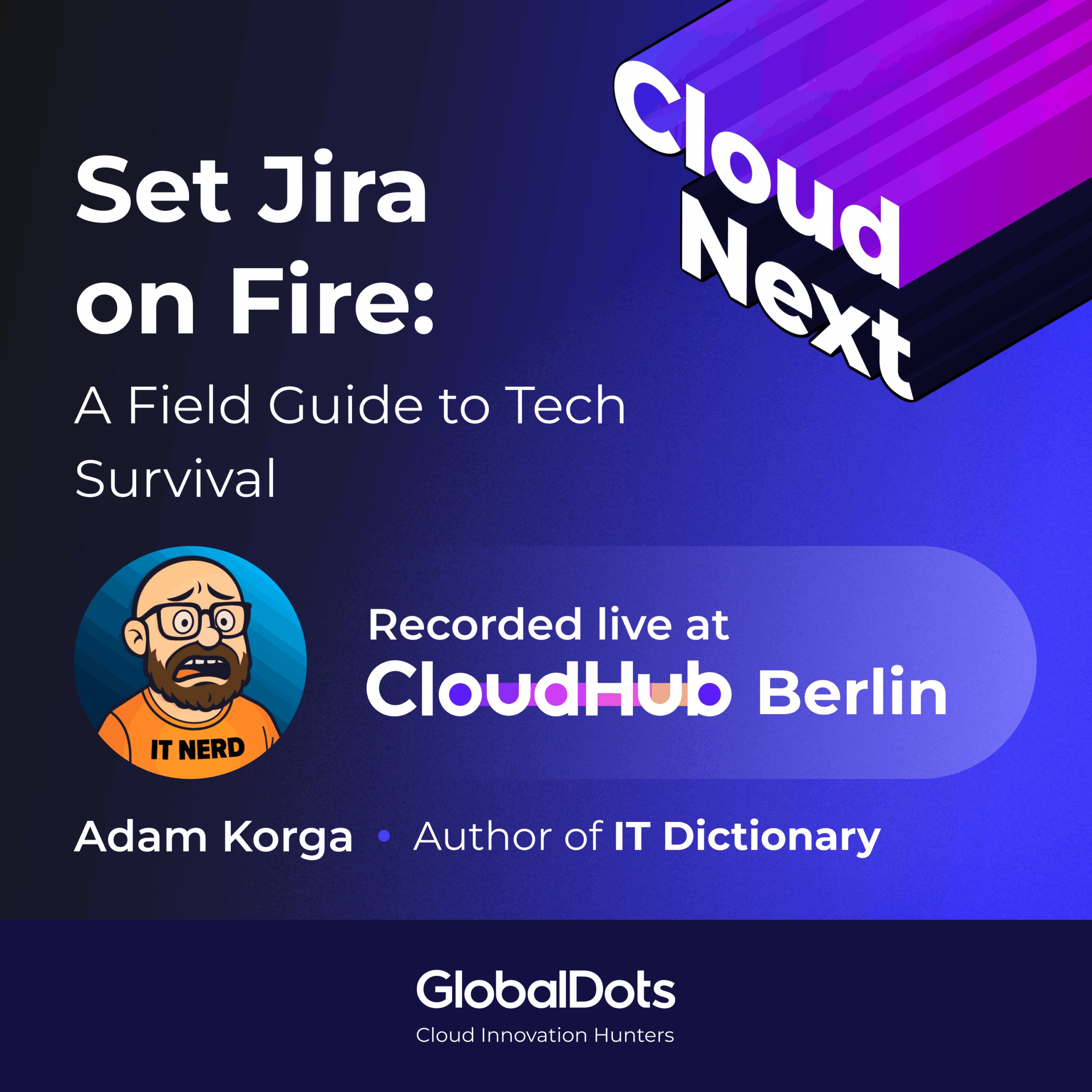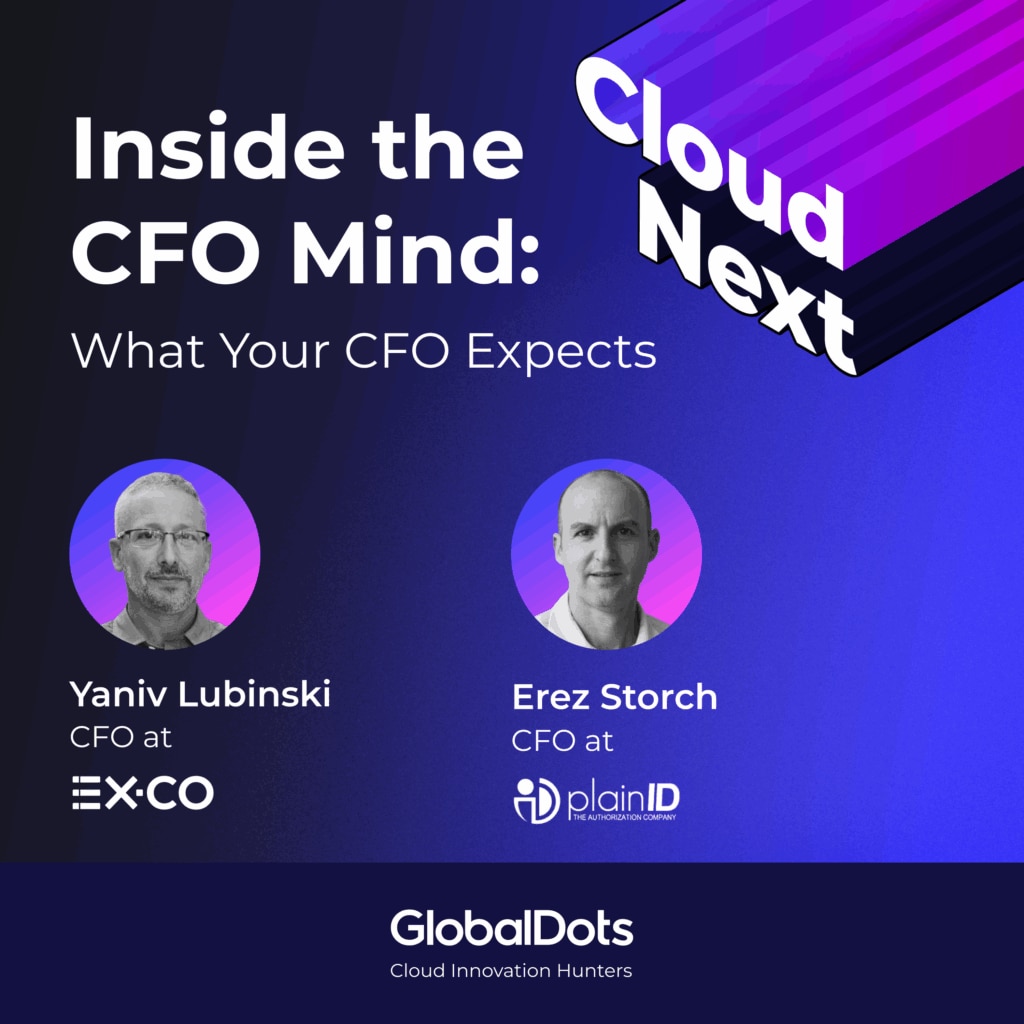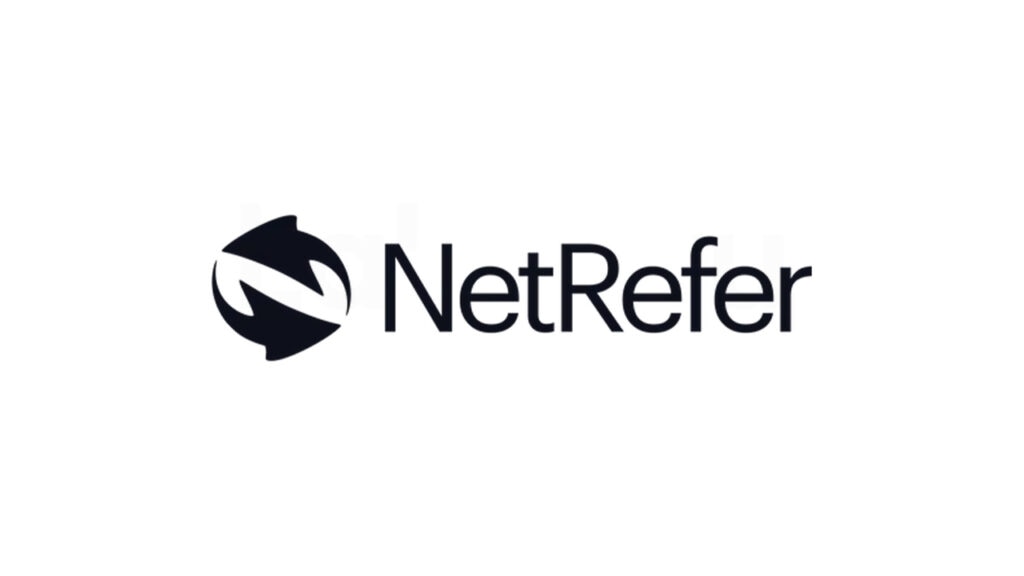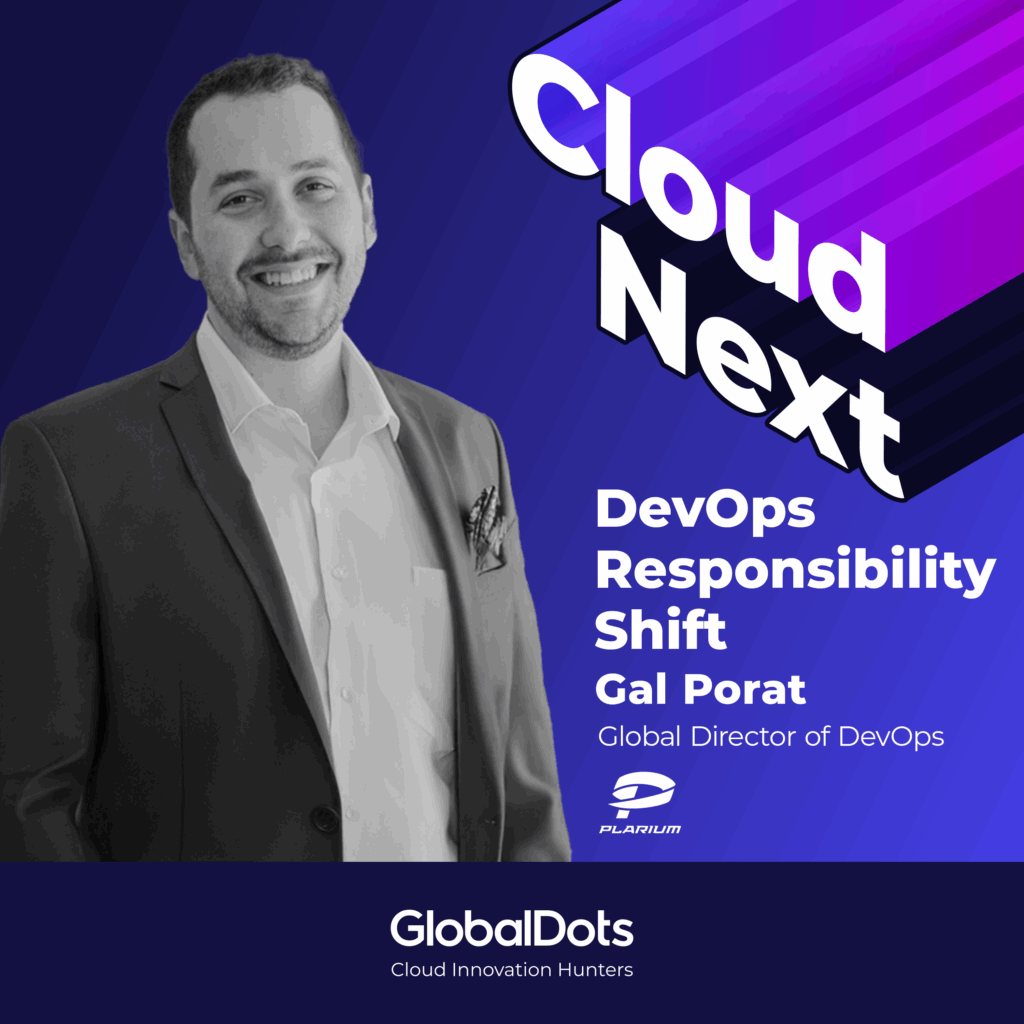This transcript was generated automatically by AI. If you find any mistakes, please email us.
0:00:00
(Liran)
we don't try to find the anomalies. We try first to close everything that we know. We try to collect as much information that we have. After that, when we have everything done and set and we reduce the MTTR time for us, we have enough time to do threat hunting and understand what are the unknowns that we know. And that's for us the secret sauce.
0:00:22
(Announcer)
Hello everyone, you're listening to Cloud Next, your go-to source for cloud innovation
0:00:28
(Announcer)
and leaders insight, brought to you by GlobalDots.
0:00:34
(Ganesh)
When your company is growing fast, operating across the globe and delivering real-time experiences to millions of users, you can't afford to slow down for security, but you also can't afford to slow down for security, but you also can't afford to get it wrong. Today, our guest is Liran Shanebox, CISO and VP of Cybersecurity at Playtika, one of the world's leading mobile gaming companies. With deep experience in both enterprise security and startup ecosystems, Liran brings a sharp and balanced perspective on what security leadership looks like at scale. I'm Ganesh the Awesome Solutions Architect at GlobalDots where we research innovations every day so you don't have to. As always, we invite you to join the conversation
0:01:08
(Ganesh)
on LinkedIn. Let us know your thoughts. Liran, before we start, what should people know about you? Tell the listener a little bit about yourself.
0:01:16
(Liran)
All right. So first of all, thank you for having me. Great honor to be here. So, a side job of my current duty, I'm also a partner and a member of Kmahin, a venture capital in cybersecurity. Kmahin is actually referenced as Truffles. So we invest in cybersecurity startups with a focus of Israeli startups in cyber security. I'm a gamer. I think the first time that my hands laid on a computer was about when I was six years old.
0:01:57
(Liran)
And since then, the computer hasn't left me and it escorted me from high school to the army and from there, you know, everything makes sense to get into the security. And I've been playing games and consider myself as a gamer. And I think one of the things that I'm really, really proud of is that I was one of the first professional gamers in Israel back then. It was back in the year of 2000. I played a game called Unreal Tournament 99
0:02:35
(Liran)
or UT99. Oh yeah. Yeah, exactly.
0:02:38
(Ganesh)
I remember this boy.
0:02:39
(Liran)
Yeah, exactly. So I was a very hardcore gamer here. And I think this was the first acquaintance where I actually started to mix a little bit with security. I don't know if you remember, but we used to have like chats in the MIRC. So we did a lot of chat or a lot of things and developments back then in those channels.
0:03:01
(Liran)
And I remember when we did like tournaments and plays, we used to always try to figure out who's the rival that we have and we used to pink flood them. So that was the first attempt that we had back then. Like a bunch of 14 year old kids's sending ping floods into specific servers, that we know that one of the competitors is playing against another rival, and we want the server to back down as soon as they start to offense. Was a good time, very interesting and fun time.
0:03:39
(Liran)
And I think that, you know, carried out, you know, my path into security and regardless in, you know, carved out, you know, my path into security and regardless in, you know, technology. Yeah, I think those are the main things that right now really, you know, show who I am.
0:03:56
(Ganesh)
Hilarious. I can't imagine any many other teenagers going to that level of cyber attack during a real tournament. Those are the sorts of things that used to happen to me and I had no idea what was going on basically because I wasn't so deep into the tech when I was younger. That's a classic story. I'll also tell the listener, because you don't get to see him, you look far too unstressed for a CISO of a company of your size.
0:04:29
(Ganesh)
You should have much bigger bags under your eyes and look a lot older, I think, but you must be coping. No gray hairs. So you're looking very good.
0:04:37
(Liran)
Yeah, no gray hairs. And I sleep pretty well. Mainly because I'm not worried that much. But we can share a little bit more about that in the next few minutes.
0:04:51
(Ganesh)
I literally can't believe that there's a CISO out there that isn't worried, but good for you that you've managed to get there. So let's talk about your role because you lead cybersecurity at a company that is seriously global scale and has to operate at extreme speed. And like, what does scaling security actually mean? It sounds like a business buzzword, but what does it mean for a company like Platica?
0:05:16
(Liran)
Yeah. So I think Playtikais a very interesting use case. We are a global company, publicly traded company in the area of gaming, but without that much of regulation. So basically, gaming is always tied with creativity and be able to experiment a lot and do a lot of things that are not related or not deeply attached with regulation. Once you get to understanding or at least the position, get to understanding that you are here to serve the business and you need to do whatever it takes to make sure that the business still continues.
0:05:58
(Liran)
There are several paths that you need to take or can choose to take in order to make sure that everything is very carefully tied together. When I approached the company, I specifically said that in terms of if we want to still continue and allow the business to grow, we need to pick a strategy. So our strategy was, while we're still able to continue to allow the business to continue
0:06:25
(Liran)
and grow, we can do a number of things. Either A, which is the bad thing in my opinion, start blocking things that we don't think are allowed. But we know that in this specific creativity will be damaged, right? If you start to block things, if you start to look around what is allowed, what is not allowed, probably business will harm in that position.
0:06:48
(Liran)
But the other solution for us was to increase the detection and increase the ability for us to view things. So we took the path in order to increase our detection and discovery. So basically, what we do here, instead of blocking, we just reduce the time that we're responding to events, right? So imagine that right now we have a SOC, or in general cases, we have SOC, that every incident takes, I don't know, 15, 20, 30 minutes, but we
0:07:22
(Liran)
know that the average in the world, roughly, is around a few hours. In Paytika, we invested a lot more resource in the detection and discovery. And we downed the MTTR, the mean time to respond for us, to seconds and minutes. So we basically can allow the business to continue and grow. But we try to collect as
0:07:45
(Liran)
much information as we have. So when something happens that it's not something that we can allow to continue, we respond immediately, right in a bit. So that allows the business to continue expanding. I think that's one of the things. And other than that, I think it's all about prioritization, right? Playtika wants to explore, and I think many companies like to explore a lot of different aspects. They want to explore the cloud, they want to explore SaaS software, they want to explore other potential, many cloud solutions, many vectors, AI, any other buzzwords
0:08:22
(Liran)
that we have. And I think what I'm trying to do, or at least what I'm trying to instruct my team as well, is to learn and understand the difference between what is critical, mission critical, and what can be delayed in a few months or weeks later. And while we try, you know, the ship of security is always trying to navigate to full security. I think the direction itself matters the most, right? We don't need to right now while we have like a long road ahead of us to navigate or to
0:08:59
(Liran)
understand where is the port in the United States. We just understand we just need to understand the route. And while we cherry pick the specific things that we need to focus on, I think that's a little bit problematic in this case. And I think we need to understand and look at the entire map and the entire route of the cybersecurity journey in Playtikaand understand the tactical things that need to be made for us to be able to continue and keep the company safe.
0:09:33
(Ganesh)
So, sounds like a nice approach. We can't go really deep into the technical stack, but having a model where you just pick up every detection and discover things as you go along and getting that down to several seconds, which, you know, it's going to be. There are certain things that you know how to detect and other people know how to detect and those are like the known knowns. And those are quite easy to do because other people have built those detections. But it'd be quite interesting to know how you've done that and how you get down to like seconds or minutes to detect something that's brand new.
0:10:12
(Ganesh)
And maybe a zero day or maybe just something specific to your company. Like what does it look like in a background? What's collecting that?
0:10:22
(Liran)
How have you made that so quick? We don't discover zero days. Because if we did, it wouldn't be called zero days. So just to make it clear, but we do put a lot of attention and a lot of focus about automation and development. And I think it's everything around even getting the right people into the right position. We, at the beginning, when we put a focus in recruiting, even for the first employee that we got into our SOC, we put an emphasis in development skills. Whereas if you will try to find other SOC analysts, R&Rs, you probably won't find anyone that really looks capable of the development skills in the requirements.
0:11:16
(Liran)
And I think once we put an emphasis about how important is automation, how important it is to develop and understand what are the main use cases that we know, right, and try to classify them and develop automation through them, we can limit down the amount of unknown events that we have. So right now, our plan is detect and collect as much as we can, right? You know, collect the hell of everything. Everything that we have, we can collect or we will collect.
0:11:50
(Liran)
And we will try to understand what kind of playbooks we have and we are familiar and do our most to develop the automation skills around it and wrap it up where we can basically give, I don't know if it's like the bot, but the SOAR, the ability to understand whether we need human intervention here or not. So just for instance, we have around 35% of the playbooks in Playtica are done automatically, like without even a single hand. And we have run right now around 85 to 90% of the automation or the entire playbooks
0:12:32
(Liran)
that are developed in Playtica are being done with some kind of an enrichment or with some kind of automation through it that helps the analyst to make a decision. That leaves us with 15 to 10% of things that we don't know or don't have any automation with that. And those are the ones that get investigated by the analyst. So we won't have any unknown slash zero day slash APTs around the company.
0:13:01
(Liran)
So I think, maybe I don't know if that answers your question, but we don't try to find the anomalies. We try first to close everything that we know. We try to collect as much information that we have. After that, when we have everything done and set and we reduce the MTTR time for us, we have enough time to do threat hunting and understand what are the unknowns that we know. And that's for us the secret sauce.
0:13:26
(Ganesh)
I think you hit the nail on the head because actually the key part there was having developers are involved in that practice because most people try and get to some sort of SOAR type. SOAR is like the Holy Grail that almost nobody can get to. And you've managed to get there, basically. And I know working with literally hundreds of companies, that it's a tough journey, basically. And most of the projects fail. And if I had to put a pin on it, I would say actually, it's because you haven't got developers
0:13:57
(Liran)
in security. Absolutely. And I can tell you that all credits go to my team. They are the ones that really insisted on putting this and really fought for it. At the beginning, we adopted the first Soar about, I don't know, maybe five years, really in the day that I came. Back then it was only a trend. People doubt doubt it. But they insisted that will help us because,
0:14:27
(Liran)
you know, even in Israel, or mostly in Israel, we see that, you know, the main power that we have in terms of security is not enough. You know, we see a lot of security companies around the world, or mostly in the United States, that are blown out of proportion. I spoke with a lot of CISOs in the United States. They have big teams. In Israel, we don't have it. There's not a lot of manpower that is allocated to security teams in Israel. Because maybe it's unmature yet, maybe people like to prioritize first startup or pushing the efforts or pushing the allocation to R&D. So we need to be in
0:15:07
(Liran)
line at least with the growth of the company. And that's something that only automation can help us. And the team pushed it very hard. And we were able to convince the management that it's very important for us. And once we started this journey, there was no stop. And I'm really proud to say that we're trying to do right now the same thing with IT, because I honestly don't think that there is any difference between SOC and NOC. I think it's like certain automation can go through, you know, NOC people. Maybe it's on the same playbook,
0:15:46
(Liran)
but I don't see the difference between the response. Right. So we're really trying right now to put efforts and do the same thing that we've done in NOC and maybe even, you know, you know, increase the efficiency there, allow them to handle more cases, and be more in trend and technology and involve them in development.
0:16:09
(Ganesh)
It's very cool. And it's definitely a lesson for all the people who are trying to get there. How many people do you actually need? Like, in that? It's good just to have a scale, basically, like how many development style security people do you need on a SOAR project for it to be successful, given the size of the company?
0:16:30
(Liran)
Yeah, so a company in the bandwidth of Platica, I would say like three employees that do the entire development. Those are the ones that, you know, the hardcore coders that do, I would say more than 50% of their time invested in development automation. But the entire team, the tier two team is also capable to do that. But the entire team is like double that size.
0:17:00
(Ganesh)
Yeah. So I want to switch back and talk about your work with startups. So you've worked with many startups, both from the CISO perspective, and also, as you mentioned at the beginning, your sort of investor lens. What do you look for in an early stage partner? What
0:17:21
(Liran)
builds trust and what breaks trust? So that's an interesting question. I really, when I'm getting approached by teams, whether it's by an investor hat or the CISO hat, I really appreciate people that are coming from technical background. I'm not into sales pitch and not into everything that is related to scare tactics or people that are trying very hard to penetrate the company with any means. I like very much to see the dreamers or people that can listen and understand the problem, even if they have a solution.
0:18:01
(Liran)
And they can relate and adapt to what you think that is a problem. So mainly, if you sell a solution, or if you want to build your solution, I like people that can help us shape it and that we can help shape it, but to be adapted according to Playtica, you know, requests and stuff like that. So basically, we really appreciate people that are into design partnerships. And I think there's a big difference between teams that are, you know, want to get your
0:18:44
(Liran)
stamp or the logo because a lot of people are hunting it because that brings the money, brings the raises. But generally speaking, we've faced a lot of startups that wanted to get to some kind of a design partnership but it ended in that specific way. They just got our logo and they continue their own route. But we do also have in possession startups that are very interesting to understand and learn and communicate with us on a weekly,
0:19:15
(Liran)
even less than a week basis, gather our knowledge and develop requests to what we need and believe. And I think that's the big difference between startups that targets a lot of companies rather than focusing on like top three or top five and making them feel like they matter and help them shape the company. I can tell that there is one big startup right now that is worth billions. Yeah, I'm not kidding. Worth billions. We're still on a design partnership agreement with them.
0:19:55
(Liran)
They still charge us pennies, but they cherish the work that we do with them. We still do a lot of conversation with them. We help them shape the new features, the new go-to-market products that they have. And they still understand the value that the company gives them. And we benefit from pricing and mostly for the adaptation of feature requests that we have. And this is a big company right now. It's like a big name in the world, not just in Israel. But this is something that we'll never forget. I know that that kind of partnership I do
0:20:36
(Liran)
really love because a company that doesn't forget you once they're grown. It's something that is irreplaceable. It's something that for sure that will take into even my next journey, whatever it might be, something that I would still continue to pursue and follow. Yeah. And I think I know the answer, but what breaks the trust that builds the trust? What breaks trust? That's a good question. I think that the first and foremost is when you start to see that you're asking for a quest and they're shipping away from you or any kind of roadmap request that you've made and you see that everything that you requested, or at least signing contract,
0:21:26
(Liran)
doesn't seem to be arriving. You know, we're trying to plan our way or dream at least of what the product will be. And then we see that it doesn't necessarily align with their expectations, and they try to go wherever the money is. And then we get to see that we just bought the dream. That's one. And I think the second thing is relationship.
0:21:56
(Liran)
You know, when you have someone that, you know, breaks your trust.
0:22:01
(Ganesh)
That's also something that for me is like a showstopper. Yeah, I work quite heavily with the startup ecosystem, but from the other side, from the sales side, and the product roadmap and it will be in in the next quarter. That is a surefire way for me to never trust you again because it's never coming. It's like going to Ikea and it's got three of the bolts and one of the doors missing when you try and assemble the furniture. It's like, guys, come on.
0:22:36
(Liran)
So next quarter is like the one of the biggest fails that we have, right? It's in development stage.
0:22:43
(Ganesh)
Yeah, it's in development stages. Yeah. Yeah, that's a, I mean, they have to say that because they are a startup and there is a possibility that they could actually deliver that feature. But, you know, advice to startups who might be listening to the podcast. If you don't think you can actually deliver that, for God's sake, don't say it because everyone hates that.
0:23:01
(Liran)
Exactly. I'd rather to have a hard no rather than, you know, like hopes getting up and trying to prepare my entire team and efforts and deliver promises to the board and the management. And I think there's another thing that always disappoints me. And that's, I mean, it's not necessarily up to startups, but the moment of acquisition for CISO is usually not a good thing. For startups, it's great.
0:23:33
(Liran)
But for CISOs that are using the startup, that basically in most cases, and sorry for the companies that buy the solutions, in more cases, it says that the solution would not be developed in the same matter or same pace that it has. It most likely be incorporated in the holistic solution that the company bought it. And you will probably get a higher contract with a lot of other extensions that you don't want to have. And it's always a problem. I have few stories about that area,
0:24:08
(Ganesh)
but you know what, let's go down that rabbit hole because I've wanted to talk about it to talk about this for ages. Like I totally don't understand. But okay, Israel is a amazing example of a startup country, like ridiculous number of amazing startups come out of Israel. And I totally don't understand that the United States or a another company or one of the big hyperscalers or whoever, you know, big brand logos You know it's doomed. And I'm not quite as close to the Israeli tech scene, because I don't live in Israel, but I work for an Israeli tech company. And you see the people moving on LinkedIn, and you're like,
0:24:53
(Ganesh)
yep, that was the main guy. That was the main guy. That was the main girl. It's a total fallacy that you can build these things and sell them and then they like grow into something better. Probably some small use cases, but like if it's Palo Alto, maybe they keep making it
0:25:12
(Ganesh)
work or something like that. But most of the time, no. But I'd love to hear your thoughts.
0:25:17
(Liran)
It's exactly the same thing. So basically, we have like a bunch of group of CISOs that we discussed among ourselves. And every time that we see someone did an exit, and someone uses the product, you always see people say, Oh, no, I need an alternative solution. We know that this is doomed. We know that it's not going to work. And it's the same thing every time. You know that you're buying a solution, you know that it's not going to be developed.
0:25:45
(Liran)
Maybe it's going to be developed within the next year. But right after that, people will leave the product in best case will be a part of the suite, in worst case will be decommissioned. Yeah, I don't know.
0:26:01
(Ganesh)
So I've got two things I want to follow up on that. First one is that it's so ridiculously true. And I met, I'm not going to name names or the company, but there was a person who was responsible for an Azure integration of a product. And I was with him in London, after an AWS event having a drink. And he said, Listen, I'm the only person who knows how that thing is built. He said, in six months time, when Azure change their API endpoints, that product will fall apart. I was like, sounds like a big ego trip that the guy would say that about something he built.
0:26:36
(Ganesh)
Six months later, Azure changed their APIs, entire Azure integration broke for that product. Took them literally months to rebuild it. It was just like crazy that product. It took them literally months to rebuild it. It was crazy that happened. But what could a company do? You're working for a very large company, you're taking on these small startups, you either don't innovate, don't take the risk. What on earth do you
0:27:00
(Ganesh)
actually do? Because you can't predict that. Yeah.
0:27:05
(Liran)
So there's no easy way out here. We need to have startups. We have to have them. And I think these are the ones that drive technology, innovation, everything around it all together up. I think my biggest take here is not to fall in love with the dream or always have like
0:27:30
(Liran)
a second plan. I know I always try, like I have a ground rule that I re-evaluate startups and softwares after two, three years. Every time, whether they are good enough or not good enough. It's not necessarily we say that I will replace them. Most likely I will not, but at least I will know who else has the same technology.
0:27:53
(Liran)
So in case something happens, I will have the opportunity to replace it. And by signing short contracts and signing or at least trying to focus on short contracts in the beginning and keeping your eyes out and not falling in love with the idea. That gives me a little bit more ability to flex myself when I need. But yeah, I mean, Best of Breed is, you know, if it wasn't any operational effort around it, I think Best of breed is, you know, if it wasn't any operational effort around it, I think best of breed is a better approach.
0:28:27
(Liran)
But there's a huge price to that.
0:28:30
(Ganesh)
A massive price for that. I want to move away from the startup scene, although I really enjoyed having a little rant about that. And it's especially where you are, actually, because Israel particularly is dripping with startups and you're unlike Europe. Europe seems to be very, what's the word?
0:28:57
(Ganesh)
Europe is very conservative when it comes to adopting a new startup technology. They only want best of breed and they only want something that's tried and tested by lots of other people. Definitely don't see that in Israel and it allows you to innovate so much more quickly because you're willing to take on, it seems the culture is willing to take on technologies more quickly and more of them more of the time.
0:29:25
(Ganesh)
I wasn't expecting to go down a rabbit hole on that. Any thoughts on that as well?
0:29:31
(Announcer)
Just out of interest.
0:29:33
(Liran)
There's a couple of benefits or side benefits to adopt startups, right? First of all, we're going to be at the edge of technology. Most likely 95% of the time, I will have answer to a problem that might rose up or will rose up in the future. So for me, being able to experiment with a lot of startups, giving the opportunity to know what's going to happen in the future. That's one. And I think also from a different perspective or different angle, I think teams or technical teams really like to play with startups.
0:30:09
(Liran)
People like to get dirty. People like to, you know, understand how things are built, like to shape things, and like really to do things that are not maintenance. And when you have the ability to explore, investigate, research, and implement something and lead it by yourself as a team member, we see people tend to stay because you're giving them a lot of reasons to stay. Their self-development is
0:30:37
(Liran)
taken care of. And they are always, they have something that they want to do and they need to do. So we benefit from that. And I can proudly say that I think this is one of the best things that keeps my teams you know, intact. We have in Playtica a robust team that the majority of them is the average here is more than four years.
0:31:01
(Ganesh)
Yeah, that's that's two years longer than companies, or probably three years longer than most companies. And to be honest, it makes perfect sense. If you put somebody in front of the SIEM and the alert management system and say, your job is to look at the alerts and manage the SIEM, you know, that's not very interesting.
0:31:18
(Ganesh)
Whereas, you know, anyone's going to burn out from that pretty quickly. I want to move away from the startups because we need to get to like the buzz word of the decade, which is AI. What's your take on it? What's your impact? We know the bad guys are using it.
0:31:34
(Ganesh)
We know the good guys are using it. And in fact, anyone who went to black hat this year will have seen that almost 99% of the stands AI was advertised as part of the security, but what does it mean to a real person in the real world doing the real job?
0:31:47
(Liran)
Yeah, AI. So I think we are on a verge of something very real is going to happen soon. That wasn't my opinion up until a few months ago. I actually did think both from investor practitioner, that AI up until six months ago was no more than a feature. But right now, I'm starting to see that there are a lot of problems that are rising up,
0:32:19
(Liran)
and there is no real solution for them. For example, we see a lot of movement around MCP. This is right now the trend, MCP in AI. Everything around by coding and everything around the development within the AI. Those are the things right now that starting to shape up and there's no holistic solution. I do believe that right now this is a pivotal moment that we can see a new segment is popping up.
0:32:53
(Liran)
And when I mean segment, I'm trying to imagine, you know, once we try to figure out anything around the cloud thing, right, the new CSPM came, and then it conquered the world. And who knows, maybe right now we'd say AI SPM now time. And that can be interesting because right now there are a lot of vectors, a lot of segments, and not just prompt security, with all respect to the companies because they are doing a good job. But up until now, I wasn't sure that this is enough.
0:33:25
(Liran)
But now it might be enough. Might be we have a lot of things to worry about that a new segment can come. So for all of you out there, I think there's a market right now.
0:33:36
(Ganesh)
Yeah, I definitely agree with that. I won't fall off the wagon and talk about some of the things that I've seen recently, but there was a huge trend towards AI prompt firewalls or AI data leakage firewalls, which were basically just if somebody asks what the CEO's yearly wage is, the AI doesn't respond with the answer, stuff like that. And it was very, very Mickey Mouse and I can't, you know, people needed it, obviously. But the full stack engineering AI
0:34:13
(Ganesh)
security solution, the first person that cracks that in the big way is definitely, you know,
0:34:20
(Liran)
it's going to be the 10x whiz basically. Yeah. And I think also around it, you know, we talk about a lot of solutions that back then or at least a few decades ago, were the hype, DLP, and everything around even IAM, like governance IAM. Those are like heavy machines, right? We know that DLP is not easy to implement. And most likely, I want to speak for myself, but unless you have to, you won't implement it because it's very not cost effective. It has a lot of maintenance, a lot of operative struggles, and you need a lot of, you know, FTEs, people to manage
0:34:58
(Liran)
that. And right now with AI, there's a big chance that a lot of the problems here can be solved. There's another hole, like as you said, like a rabbit hole of another area of dangers that can happen. But I think all around the good things that can come up with, you know, developing AI to help DLP or anything that was a little bit more obsolete is greater than the dangers that we see in AI.
0:35:26
(Ganesh)
Yeah, I totally agree with that. And I totally hate DLP projects. Because at the end of the day, everybody's got a phone in their pocket, and they can just take a picture of the screen if they want to. And unless you've got CCTV cameras that are watching people all day, you know, it's ridiculous. It's like you can't stop that for sure. For sure. Yeah. So we always like to ask the DeLorean question on the show, which is if you could go back in time and
0:35:53
(Ganesh)
give yourself one piece of professional advice, what would it be?
0:35:57
(Liran)
I assume everyone said they're all in on Nvidia or Apple. So let's take this one for, put it on the side. I think the best advice that I would have to myself is take more risks. Drive yourself a little bit further in what you believe that you can do. Nothing will happen. I always find myself questioning whether I can push it a little bit further, whether I can do a little bit more with every opportunity that I had. And
0:36:33
(Liran)
I think being able to have more guts, I think will have pushed either myself or the company, speaking maybe personally here, to do a little bit better than what I do right now. So have more courage.
0:36:49
(Ganesh)
Yeah, that's nice. I never expect to hear a CISO saying that one of his pieces of advice to himself was to take more risks. It's not usually seen as the most risky thing.
0:37:01
(Liran)
But I want to explain myself. So it's not about the CISO. Maybe it's more about Liran. So if one of we can talk a little bit about the CISO advices, but for Liran, for professional growth, for his opportunity to be a better practitioner and better, you know, model, that will be the greatest advice. And always not to listen to my parents. I think that's another good advice.
0:37:33
(Liran)
I kept doing the opposite thing since the age of 18. I kept doing the opposite thing that my parents told me. So I think that's the best advice that I gave me. My father knows it, but that's another good advice.
0:37:46
(Speaker 3)
Yeah.
0:37:47
(Ganesh)
There's definitely some like teenage rebellion or something still going on inside you there. Yeah. Wonderful. Really genuinely a pleasure talking to you. You are in the top of your league in the game. So it's really interesting to have your thoughts and comments on this topic.
0:38:04
(Ganesh)
And thanks for being a guest on the show.
0:38:05
(Liran)
Thank you for having me.
0:38:07
(Ganesh)
This episode was produced and edited by Daniel Ohana and Tomer Mulvidzon, sound editing and mix by Bren Russell. I'm Ganesh The Awesome. And if you're ready to deep dive and start transforming the way you approach cloud practices and cybersecurity strategies, then the team and myself at GlobalDots are at your disposal. We are cloud innovation hunters and we search the globe looking for the future tech solutions so we can bring them to you.
0:38:31
(Ganesh)
We've been doing it for over 20 years. It's what we do. And if I don't say so myself, we do pretty well. So have a word with the experts. Don't be shy. Don't be shy.
0:38:40
(Ganesh)
And remember that conversations are always for free.


